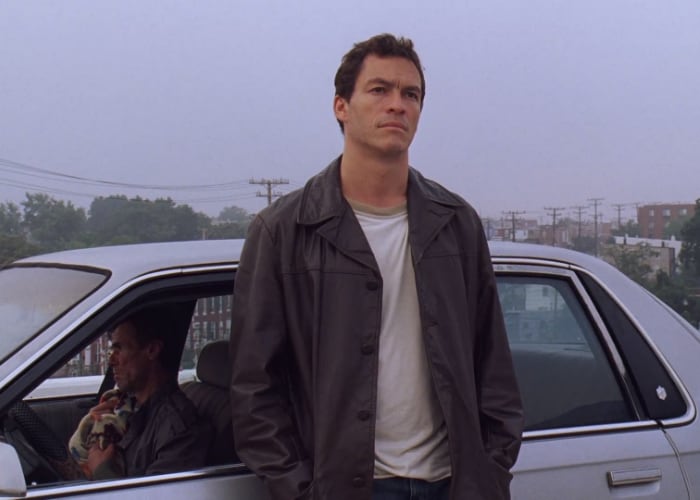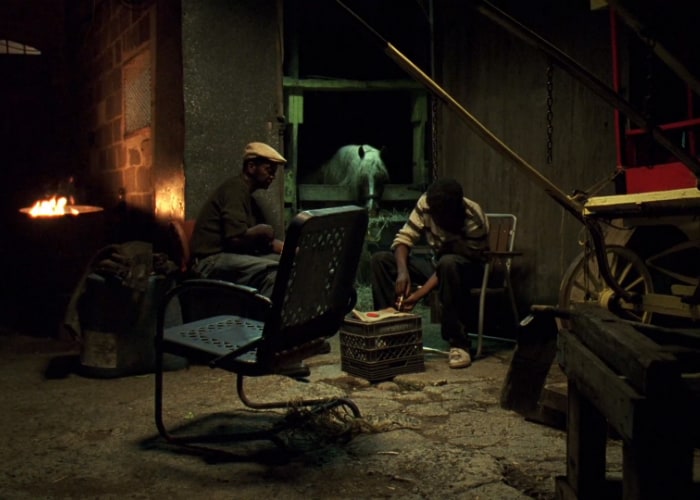
There are two types of TV fans: the ones who consider The Wire to be one of the crowning achievements of modern storytelling, and the ones who are still putting off watching it. And that’s understandable — it’s long, it’s dense, and on paper, the plot doesn’t sound incredibly riveting. But make no mistake. It’s one of the finest shows ever produced.
And one of the necessities of a fine show is a landing that sticks. There are some critics who think The Wire should have ended before it did, or that the fifth and final season was out of place. While the fifth season might not be the strongest, it’s true, it’s still innovative and sublime and better than most TV, and it finishes on a note that holds true to the show’s tenets and makes the ride more than worthwhile.
It didn’t have to, though. It’s hard to craft a satisfying end to a show that’s been held to impossibly high standards for years. (This is a general observation, of course, and has nothing to do with current TV events). The end of The Wire soars, however with an episode that places a firm cap on the events of the show, while demonstrating that nothing really ends. It’s a winning choice for a finale to make and something that I’ve already gone on the record as being a total sucker for.
But The Wire‘s take on a finale in which nothing really ends is unique to its own brand of storytelling and completely faithful to the structure it spends five seasons building.
One of the hallmarks of The Wire is its insistence on the massive and unmovable nature of the systems in place. The police are corrupt, the politicians are corrupt, the drug trade and violence are ubiquitous, and anyone who tries to break free from the wheel is in for a rude awakening and, more likely than not, a reordering of personal principles. Years before True Detective shoved “time is a flat circle” into the popular lexicon, The Wire had its own message of inescapable cycles. But instead of vague mysticism and unnamed gothic dread, it tells a story of harsh realities, of systemic faults at the core of the city of Baltimore and the hearts of mankind.
And the finale, titled “-30-,” doubles down on this cyclicality, with new characters sliding into old roles. Sydnor (Corey Parker Robinson), told he can’t prosecute Clay Davis (Isiah Whitlock Jr.), surreptitiously takes his case to Judge Phelan (Peter Gerety), just as Jimmy McNulty (Dominic West) did in the show’s first episode. Meanwhile Michael (Tristan Mack Wilds), finding a vacancy as too-cool-to-be-true Robin Hood of stash houses, takes over as the new Omar (Michael Kenneth Williams).
The episode ends with a montage, set to The Blind Boys of Alabama’s Season 1 rendition of the theme song “Way Down in the Hole.” The audio is enough of a cue that we’re returning to the beginning, but the montage shows that, while that may be where we’re going, not all the characters are coming with us. Vacant roles mean characters have moved on and, thankfully, it’s not always because they’ve died. There are promotions, new careers, new alliances, and redemptions. The most moving shot is of Bubbles (Andre Royo), the recovering addict and heart of the show, finally sitting down to dinner with his sister.
Because even as it demonstrates the inescapable nature of Baltimore’s violence, poverty, and racism, “-30-” has a spark of hope. While large-scale things remain static, small-scale things can still change. The city may not be capable of growth, but its inhabitants are.
Of course, while individual characters may be changing their positions in life, the great game of musical chairs carries on and certain empty roles have to be filled. Some of these go without saying — there will always have to be a police commissioner and a governor of Maryland — but there will also always have to be a tragic addict like Bubbles and a disenchanted detective like McNulty. While some roles might be ordained by the government, none are less inherent or less ingrained in the system.

The result is the strong impression of a massive, unmovable framework in which the players move and live out their lives. There’s something larger-than-life about it, like an ancient myth with ineffable destinies and indelible roles to be filled. Forget claims that the city is a character in the story — The Wire’s Baltimore is a world all its own.
But within that mythical, mystical world are very real people struggling against a very real system. It’s no accident that the montage ends, not on named characters, but on the crowds of Baltimore, and on the city itself — a real place with real, recognizable landmarks. The Wire has a deft sense of literary storytelling, but it also deals heavily in gritty realism. It’s the confluence of these two aspects, so seemingly at odds with each other, that carries the finale and expresses, in no uncertain terms, what a miraculous show it really was.
Related Topics: Finale, HBO, The Wire

